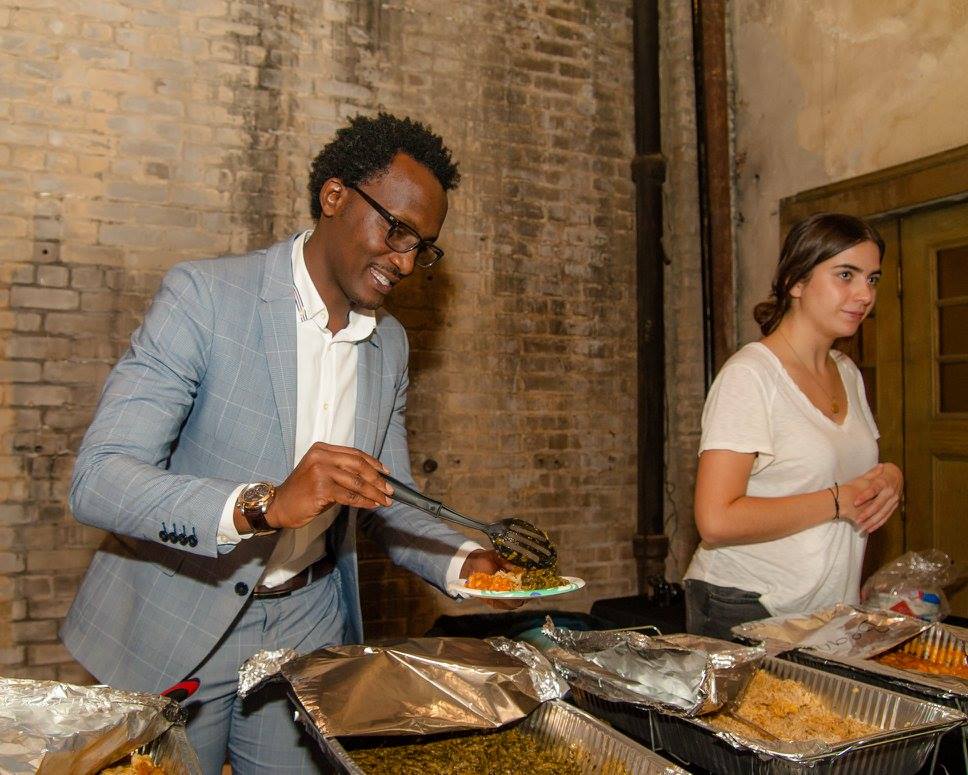“Hey, we don't have enough, but we have this, and that's something,” said Hamissi Mamba, a Burundian refugee who is currently in the process of launching his own East African restaurant, juice bar, and grocery store in West Village, Detroit. Fleeing from political violence back home, Mamba came to the United States three years ago with nothing - no house, no credit card, no legal status to find a job - but he carried an entrepreneurial idea, innovative spirit, and engaging mind to continuously learn and develop. Furthermore, he held a vision to accomplish social missions by revitalizing the Detroit community through his home cuisine. Detroit is a natural habitat for dreamers and motivated social entrepreneurs like Mamba. In three years, Mamba transformed from a refugee who “[didn’t] have enough” to a social entrepreneur who is almost ready to open his own restaurant, Baobab Fare. In Detroit, Mamba’s innovation spirit and idea is “something” that could grow and mature, and in fact Detroit has the capacity and energy to nurture any ideas of such kind and bring them to life.
As an intern at ProsperUS Detroit this summer, I have had chances to meet a number of entrepreneurs, including Mamba, who have been supported by the program. Although it has been merely two weeks, I am deeply impressed by ProsperUS’s impact in the community and its mission to empower low and moderate income, immigrant and minority individuals. Working for ProsperUS grants me opportunity to take part in some of the program’s services: entrepreneur training, technical assistance, and micro-lending; each service is designed to help its participants achieve their goal at the lowest cost possible on their side, so that individuals who normally would not be able to afford business training or be qualified for a loan from a bank are given sufficient resources to build, start, and operate their businesses. ProsperUS sets itself apart from many commercial organizations and embraces low income entrepreneurs, immigrant entrepreneurs, and minority entrepreneurs by using a character-based assessment when it examines applicants of the program. ProsperUS aims to support any entrepreneurs who carry passion, commitment, and social mission; to ProsperUS, a lack of business experience or a low economic status should not be blockades on one’s path toward innovation and enhancement of the community. In Detroit, many other social impact organizations and programs alongside ProsperUS are driving forces in promoting small-scale businesses’ growth and the spirit of social entrepreneurship.
To me, social entrepreneurship is a spirit and mission to create social improvements and sustain such impacts through business-driven approach, innovation, and wise use of resources. Social enterprises are exceptional in that they are driven by creating social benefits, instead of private benefits, such as wealth and fame. I see social entrepreneurship as altruistic for its fundamental mission to empower and enhance the good in others, but it is not completely selfless in that the practitioners of social entrepreneurship ultimately would be benefited from an improved society and a space where people have an increasingly strong awareness to share resources to help each other grow.
As an intern at ProsperUS Detroit this summer, I have had chances to meet a number of entrepreneurs, including Mamba, who have been supported by the program. Although it has been merely two weeks, I am deeply impressed by ProsperUS’s impact in the community and its mission to empower low and moderate income, immigrant and minority individuals. Working for ProsperUS grants me opportunity to take part in some of the program’s services: entrepreneur training, technical assistance, and micro-lending; each service is designed to help its participants achieve their goal at the lowest cost possible on their side, so that individuals who normally would not be able to afford business training or be qualified for a loan from a bank are given sufficient resources to build, start, and operate their businesses. ProsperUS sets itself apart from many commercial organizations and embraces low income entrepreneurs, immigrant entrepreneurs, and minority entrepreneurs by using a character-based assessment when it examines applicants of the program. ProsperUS aims to support any entrepreneurs who carry passion, commitment, and social mission; to ProsperUS, a lack of business experience or a low economic status should not be blockades on one’s path toward innovation and enhancement of the community. In Detroit, many other social impact organizations and programs alongside ProsperUS are driving forces in promoting small-scale businesses’ growth and the spirit of social entrepreneurship.
To me, social entrepreneurship is a spirit and mission to create social improvements and sustain such impacts through business-driven approach, innovation, and wise use of resources. Social enterprises are exceptional in that they are driven by creating social benefits, instead of private benefits, such as wealth and fame. I see social entrepreneurship as altruistic for its fundamental mission to empower and enhance the good in others, but it is not completely selfless in that the practitioners of social entrepreneurship ultimately would be benefited from an improved society and a space where people have an increasingly strong awareness to share resources to help each other grow.
 Hamissi Mamba serving his home cuisine at ProsperUS Annual Convening (photo taken from the ProsperUS facebook page)
Hamissi Mamba serving his home cuisine at ProsperUS Annual Convening (photo taken from the ProsperUS facebook page)
 RSS Feed
RSS Feed
